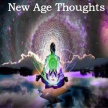The Role of Social Sciences in History
How History Fits with Social Sciences

The roles that the social sciences have within history are more important that one would have considered when attempting to define the word history. For the layman, they would consider history to be a compilation of dates, facts, and artifacts. Yet, the social sciences are tied into those dates, facts, and artifacts, and in such a way that the layman would once again avoid any appreciation for the art. Historians easily fall into the role of social sciences. This essay is going to be covering three different social science perspectives. The first deals with history anthropologically, this is covered by Edward Said, who discusses how the hegemonic impacts in Orientalism. The second is E.P. Thompson, with his sociological approach on classes. The third covered is the topic of historical materialism covered by Marx and Engels.
Edward Said is one of those historians. He can be considered a historian, but is regarded as a profound anthropologist that covers an amount of work. In Introduction to Orientalism, Said introduces this topic of Orientalism, an idea that was developed by the Occident, which he considered to be an invention of the Western academic world. Said defined Orientalism in three qualifications. First, the term falls under an academic point. It was simply for those who want to study and for the scholar who teaches, writes, or conducts research about countries in the East. The topic did not matter. A second qualification, Said states that the Occident created the term Orient not only for scholarly purposes, but also as a way to show cultural superiority over countries in the East. By defining a country as Oriental, it is calling that country inferior. “The relationship between Occident and Orient is a relationship of power, of domination, of varying degrees of complex hegemony, and is quite accurately indicated in the title of K.M. Panikkar’s classic Asia and Western Dominance.” It is clear that this idea has served to be appropriate with writers, politicians, historians, as well as all of the West. The third views Orientalism as a communal foundation for dealing with and dominating the Orient. In this matter of control, it is through civil and political processes. To attempt to control a countries culture, will ensure domination, “Culture, of course, is to be found operating within civil society, where the influence of ideas, of institutions and of other persons works not through domination by what Gramsci calls… hegemony, an indispensable concept… identifying ‘us’ Europeans as against all ‘those’ non-Europeans.” An idea that Said also states is that in order to truly understand Eastern cultures, the term Oriental must be dropped and there must be someone who is from that culture doing its research and presenting it in a matter that only someone from that specific culture can understand.
E.P. Thompson’s approach imbues the reader with a sense of despair when he discusses the life of the proletariat. The narrative is depressing, portraying the men and women of the working class in an endless struggle against their oppressors, “Working classes is a descriptive term, which evades as much as it defines. It ties loosely together with a bundle of discrete phenomena. There were tailors here and weavers there, and together they make up the working classes… but if we watch these men over an adequate period of social change, we observe patterns in their relationships, their ideas, and their institutions. Class is defined by men as the life their own history, and, in the end, this is its only definition.” It is this idea of class that defines Thompson’s essay. His approach is similar to a term called historical materialism.
Karl Marx and Friedrich Engels created this idea of perspective called historical materialism. This was a methodological approach in which a Marxist historiographer would focus on human society and its development over time. This idea that there is a state of nature is something that Western civilization feeds its society; this can be the viewed in a comparable system as the Occidental hegemony that dominates the Oriental. Yet, this is the first lie that Marx and Engels addressed. We were fed this idea that there is a social structure in place and it is seen throughout the history of man. “The social structure and state are continually evolving out of the life-process of definite individuals… may appear in their own or other people’s imagination… yet…they work under definite material limits, presuppositions, and conditions independent of their will.” We have seen the social structure develop through the work of history. Marx claims that man can see a sociological change through its clear development of how it obtains resources. Looking at tribal communities employing a cooperative, or communist society, as Marx would claim it to be, employs the use of a hunter and gatherer type society as their means of production. This tribal consciousness constitutes a need for producing for the good of the tribe. This would include the growing population. As society progressed and the advancement of technology aided in production which “only makes its appearance with the increase of population…” society began to change and grow, so it believes. It began to lose its cohesiveness of production for the betterment of self and tribe. Yet, somehow that tribal consciousness continues to drive society.
With the rise of the feudal systems, feudal lords demanded that peasants farm for the benefit of the Lord, claiming that without serving him, the peasants would be without a place to live and starve to death. This sustained the tribal consciousness or hive mind in which “an invisible hand” is guiding the lives of the proletariat. The first thought would be that the invisible hand would be the feudal lord guiding the peasants to work and manipulating them. The individual living in this mindset would have no ability to see outside of material goods and production. This is still seen in the modern world instead of viewing the world in a way in which we all work for the betterment of each other. We work, we get paid, we buy material wealth because that is how society views success. Marx would claim that the invisible hand is the mind of the peasants themselves. “It is self-evident, moreover, that 'specters,' 'bonds,' 'the higher being' are mental expressions... and limitations.” It is evident that there is a lack of consciousness of the self whether the individual believes it to be or not.
Said, Thompson, and Marx have two different approaches to history and social science. Said’s approach is anthropologic in nature. He approaches the concepts of Orientalism and Occidentalism as a hegemonic relationship between two different cultures. It is through this approach that Western society views the East. Not as a culture but as a society to dominate, control, and put themselves on a pedestal and attempt to show the world of their own cultural dominance. Thompson and Marx have a similar view when it comes to society about class and class conciseness. It's through the idea of “tribal consciousness” where an “invisible hand” or the modes in which the proletariat thinks that what they are doing is for their benefit and society yet, it is seen and argued through Marx’s approach that what they are doing is for the betterment of one individual or of the individuals of the bourgeoisie class. Thompson’s view on class is similar in which there is a concept of class consciousness yet, its view of clumping all workers under one term, and under this one term, the working class is lumped into this endless struggle with their “oppressors” or the bourgeois class. These three views do have something in common. Placing a class or society under a term or definition undermines the lives of the people who were actually involved. Each term forgets about culture, about life, and about people who actually endured these struggles.
This is where my belief and thoughts on history come in. I firmly believe my approach to history sociological and anthropological. In order to gain an understanding of how societies functioned in the past, the historian needs to look further than the bourgeois class and needs to look past the terminology negatively and positively defines cultures. The historian needs to look at the lives of those people who are living the struggles and the successes, as well as looking at how a culture defines themselves. Yet, the difference between anthropology and history, in this case, is that the historian must still have an understanding of the past and the present of the culture. This comes with immersing yourself into research and proposing arguments and immersing yourself fully into the culture while holding on to qualitative data over quantitative in your research.
About the Creator
New Age Thoughts Chicago
I am pretty well versed in esoteric and occult knowledge. I pride myself in knowing about history and religion. I want to share my passion for each of these things with you guys! Hopefully you enjoy it!






Comments
There are no comments for this story
Be the first to respond and start the conversation.